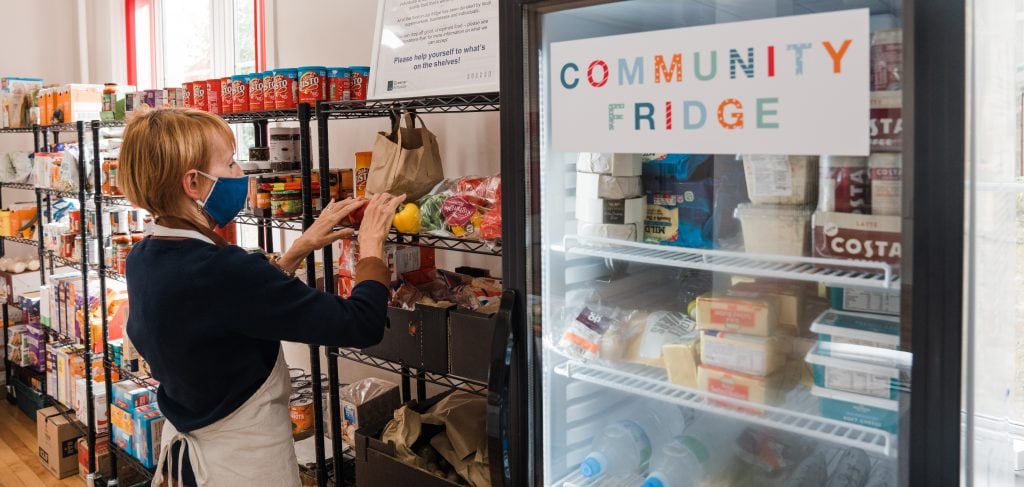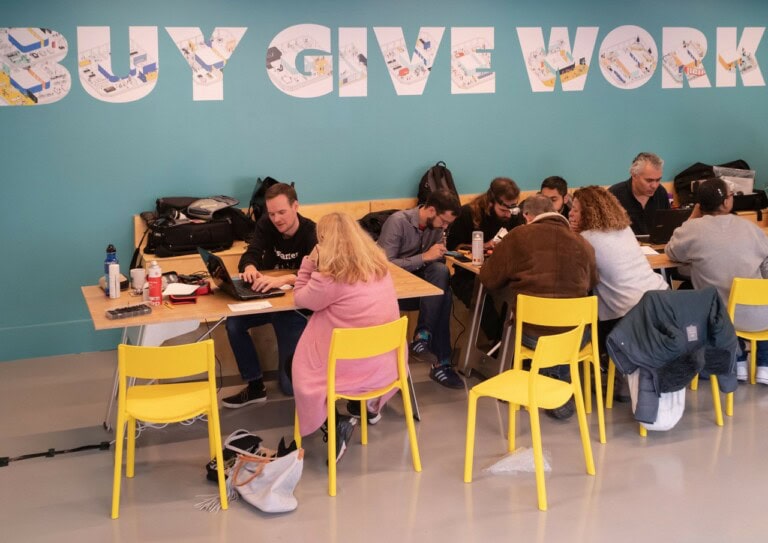Community Fridge

Problem Addressed
Food waste – In the UK, £13 billion worth of edible food is thrown away from our homes every year and a further £3 billion of food wasted by the hospitality and food service sector. This waste occurs in small increments at a local level, which often means that it can be hard to redistribute.
Education – How can we provide householders with guidance on how they can reduce food waste within their own homes as well as guidance on how to make healthy, affordable food choices?
Case Study
Wolverton Community Fridge – was launched in July 2017 (one of the first in the UK) and in its first two years has diverted more than 48 tonnes of food from the bin to the people of Milton Keynes. Due to its popularity, in 2018 and 2019 independent community groups launched new community fridges at Daisychain Children’s Centre in West Bletchley, Woughton Community Council in Coffee Hall, Netherfield Vineyard Church and The Little Bookshop Cafe in Great Linford. Milton Keynes now has the highest density of community fridges per person in the country. In June 2020, Hubbub trialed Food Connect in Milton Keynes – a zero-emissions service to redistribute surplus food. Launched during the COVID-19 lockdown, the service redistributed more than 2,000 food parcels to vulnerable households and saved over 1,700 food miles.
Aberystwyth Community Fridge (Aber Food Surplus ECO Food Sharing Hub) - Aber Food Surplus hosts a community fridge in their ‘ECO food sharing hub’. The community fridge complements their activities at the hub – community café, food education and workshops as well as food growing. Many people in their community have outdoor space, but don’t have the skills, confidence, or spare funds to start to develop those spaces to grow their own food. They experience both financial and food insecurity, which discourages them from investing in a currently uncertain future. Their focus is to support the CF with food growing and encourage individuals to grow their own food to create a more resilient Aberystwyth.
This page presents data, evidence, and solutions that are provided by our partners and members and should therefore not be attributed to UKGBC. While we showcase these solutions for inspiration, to build consensus, and create momentum for climate action, UKGBC does not offer commercial endorsement of individual solutions. If you would like to quote something from this page, or more information, please contact our Communications team at media@ukgbc.org.
Related
Model to give away space when space is bought

Collecting and donating surplus furniture, equipment and materials

Service to collect waste wood

Green roofs for people and nature

